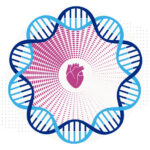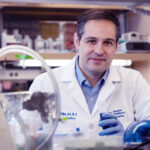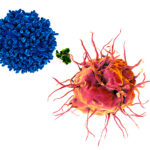Unlocking a treatment for diffuse intrinsic pontine glioma

Diffuse intrinsic pontine glioma (DIPG) is a highly aggressive and one of the most difficult-to-treat childhood tumors. It’s the second most common malignant brain tumor, as well as the leading cause of brain tumor death among children.
“It’s essentially 100 percent fatal,” says Katherine Warren, MD, clinical director for Pediatric Neuro-Oncology at Dana-Farber/Boston Children’s Cancer and Blood Disorders Center. “For years, we have tried different chemotherapy drugs, and nothing has worked.”
Identifying effective chemotherapy for DIPG
Warren has been researching cancer of the central nervous system (CNS) malignancies, such as diffuse intrinsic pontine glioma (DIPG), for more than two decades. Despite increasing knowledge of tumor biology, progress has been slow to develop an effective treatment for DIPG. One reason for this is the tumor’s location within the pons, a critical structure in the brain, which makes DIPG especially difficult to study. “It’s an area that controls basic life functions like heartbeat, breathing, and consciousness,” says Warren.
The pons is protected by a “super” blood-brain barrier, making it nearly impossible to deliver drugs to the tumor site. In addition, the tumor is intricately entwined with normal brain tissue, so surgery is not an option. And although radiation is a temporary fix, the tumors frequently begin to grow again in three to four months.
“We need a concerted effort with multiple therapies over time, not just radiation, not just one chemotherapy drug, but a multi-pronged approach,” says Warren. “A big hurdle is figuring out how to expose that part of the brain to these therapies, which can be toxic, to make the tumor cells go away and not damage the normal cells.”
A consortium and a clinical trial
A new multi-institutional consortium and an upcoming clinical trial may offer hope. On Dec. 2, DIPG researchers from Dana-Farber/Boston Children’s Cancer and Blood Disorders Center, Lucile Packard Children’s Hospital Stanford, Seattle Children’s, Lurie Children’s Hospital of Chicago, Texas Children’s Hospital, and the University of Florida will kick off the initial meeting of the first DIPG Brain Tumor Consortium and bring their innovative ideas together in Boston for a day-long meeting.
“The idea behind this consortium is to use extensive preclinical information from DIPG tumor cells and animal models to optimize clinical trial design, determine effective dosing and schedule, and translate these in comprehensive clinical trials for children with DIPG.” says Warren. “We want to figure out what preclinical information we need to expand upon before we bring it to the clinic, so these kids have a chance.”
At the same time, a study will be opening — a combination of two chemotherapy drugs, brain-penetrant pan-proteasome inhibitor marizomib and histone deacetylase inhibitor panobinostat. A prior study co-led by Warren, published last week in Science Translational Medicine, identified this combination’s potential via high-throughput drug screening on patient-derived cells.
“This study has the most extensive pediatric brain tumor preclinical testing we’ve done for any drug combination before bringing it to the clinic,” Warren says.
Testing performed in mouse models, rat models, and non-human primates are helping Warren and her colleagues determine the dose and schedule needed to effectively treat the tumor. Normally, for a phase-one study, most patients receive one drug and continue until they progressed, but this study is designed to allow patients to eventually receive a combination of both drugs, for as long as they can tolerate them.
“This way they have a better chance of responding,” says Warren.
The trial will enroll a small number of patients, all under the age of 22, who will be comprehensively evaluated. “If it still doesn’t work, we want to have the information to understand why, but we hope this will be a promising therapy that will extend the life of children with DIPG.”
To learn more about the upcoming clinical trial, email pno_npc@dfci.harvard.edu or call Neuro-Oncology at 617-632-2680.
Related Posts :
-

In the genetics of congenital heart disease, noncoding DNA fills in some blanks
Researchers have been chipping away at the genetic causes of congenital heart disease (CHD) for a couple of decades. About 45 ...
-

The journey to a treatment for hereditary spastic paraplegia
In 2016, Darius Ebrahimi-Fakhari, MD, PhD, a neurology fellow at Boston Children’s Hospital, met two little girls with spasticity and ...
-

Microvillus inclusion disease: From organoids to new treatments
Microvillus inclusion disease (MVID) is a rare type of congenital enteropathy in infants that causes devastating diarrhea and an inability ...
-

Exposing a tumor’s antigens to enhance immunotherapy
Successful immunotherapy for cancer involves activating a person’s own T cells to attack the tumor. But some tumors have ...





